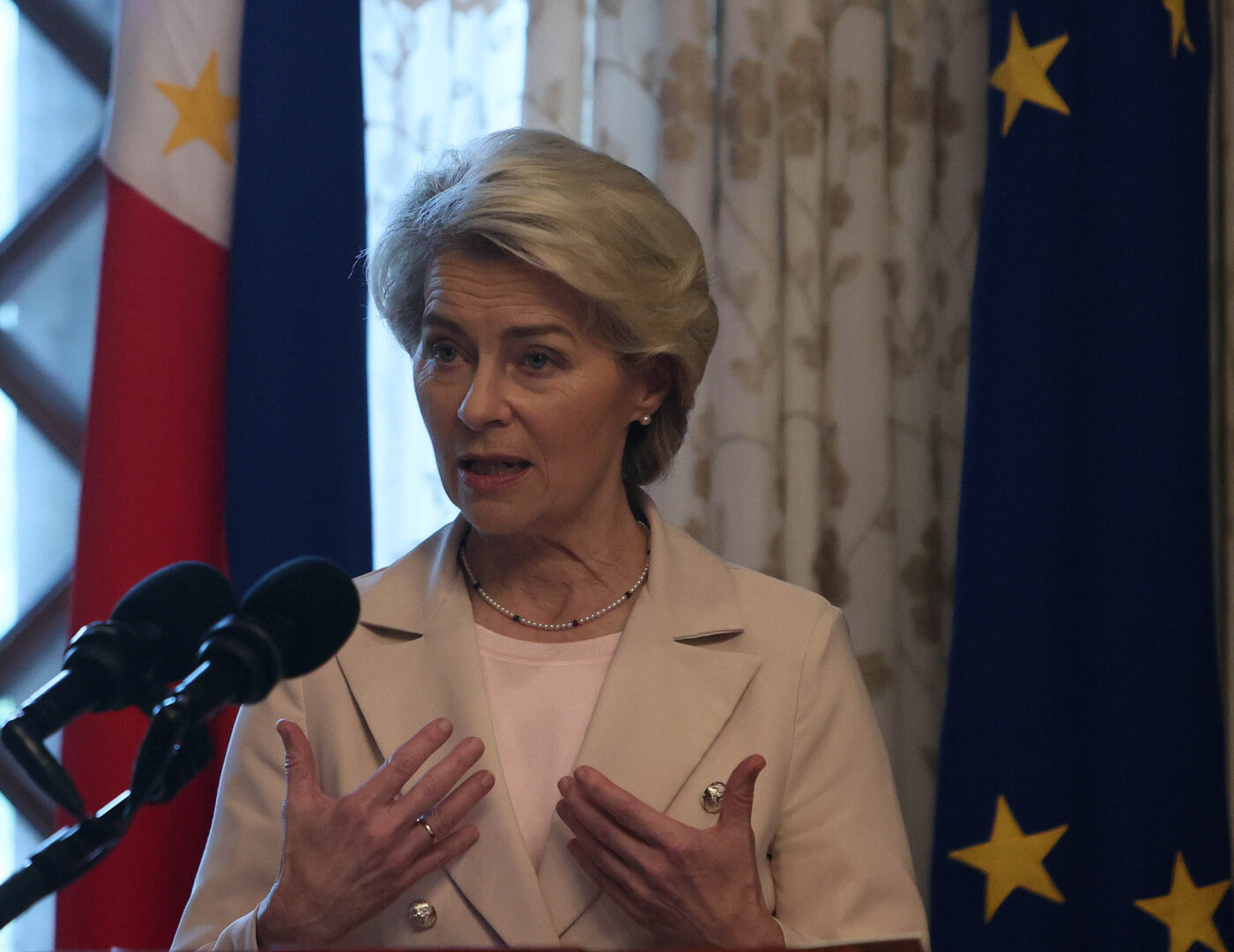The state of human rights in the Philippines has improved under the administration of President Ferdinand Marcos Jr., European Commission President Ursula von der Leyen said on Tuesday.
Von der Leyen, in Manila for a two-day visit, said the Philippine government is now “more cooperative.”
“The government now is much more cooperative with the United Nations and other international organizations; this is very important. Therefore, we see progress,” she said.
“As I said, there’s much improvement. Still, [there are] topics that we have to discuss, issues that are raised in the constant dialogue that we have with the Philippines. But the environment is much better, and it’s important for us that there’s improvement in the steps forward,” she added.
Earlier this year, European Union Subcommittee on Human Rights Chair Hannah Neumann made a similar observation when she visited the Philippines.
Neumann noted that the human rights situation in the country was “better” than it was during the term of Marcos’ predecessor, former President Rodrigo Duterte.
“It is better than it was under President Duterte. I think that is what we can clearly state,” she had said. “We had an impression that everyone was very willing to discuss human rights issues with us which had not been the case during the previous administration.”
Neumann, likewise, welcomed the new government approach in terms of its anti-narcotics campaign under the Marcos administration.
‘GSP+ extended’
Duterte is accused of committing crimes against humanity before the International Criminal Court about his campaign against illegal drugs that resulted in the deaths of about 7,000 people, according to government data.
However, both local and International human rights groups disagreed with that figure, claiming that the number of dead could have reached as high as 20,000.
Von der Leyen also announced the Philippines would still be able to enjoy perks under the EU’s Generalized Scheme of Preferences Plus (GSP+), as it was extended until 2007. “We evaluated the situation and we found that we can extend the status quo; that is good news… till 2027,” she said.
Under the EU’s Generalized Scheme of Preferences Plus (GSP+), developing countries are given special incentives, which include cutting import duties to zero on more than two-thirds of the tariff lines of their exports.
The Philippines is among the developing nations that currently enjoy perks under the EU’s GSP+. The trade preference allows the duty-free entry of 6,274 Philippine products into Europe.
In 2021, the European Parliament warned then president Duterte that it would suspend the country’s trade privileges under the GSP+ unless it complied with human rights obligations and ensured free and fair elections in 2022.
